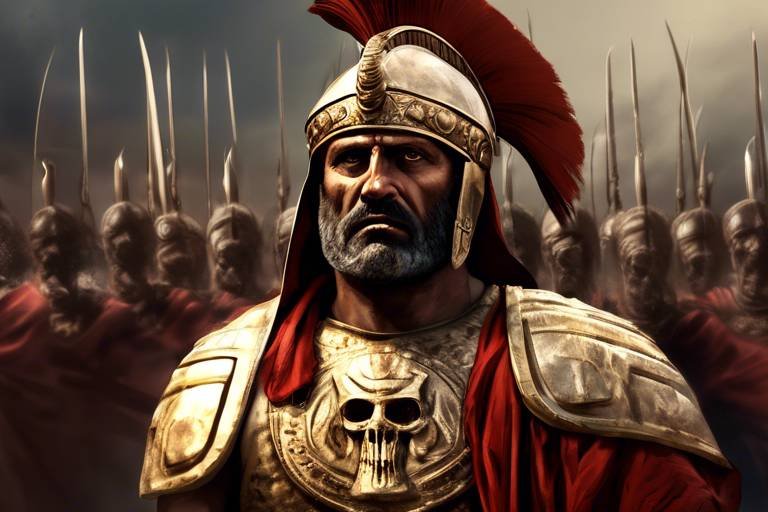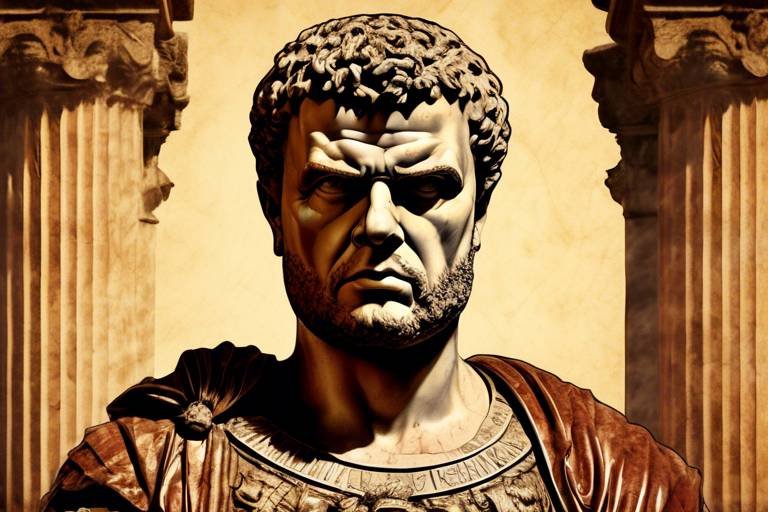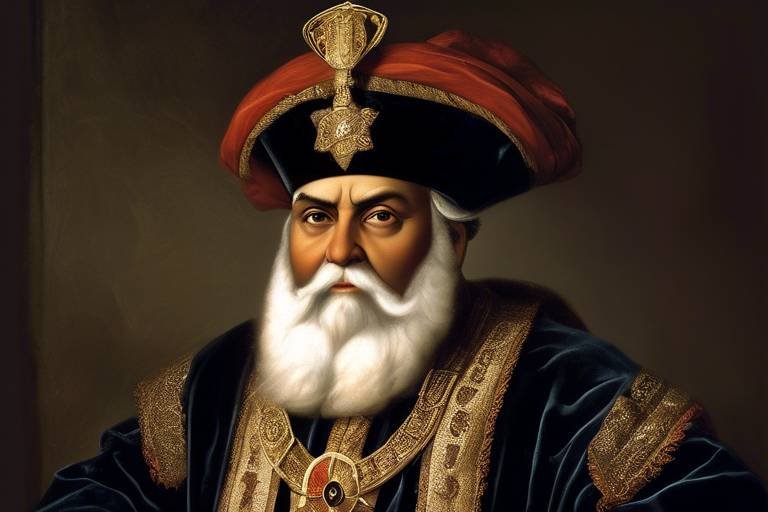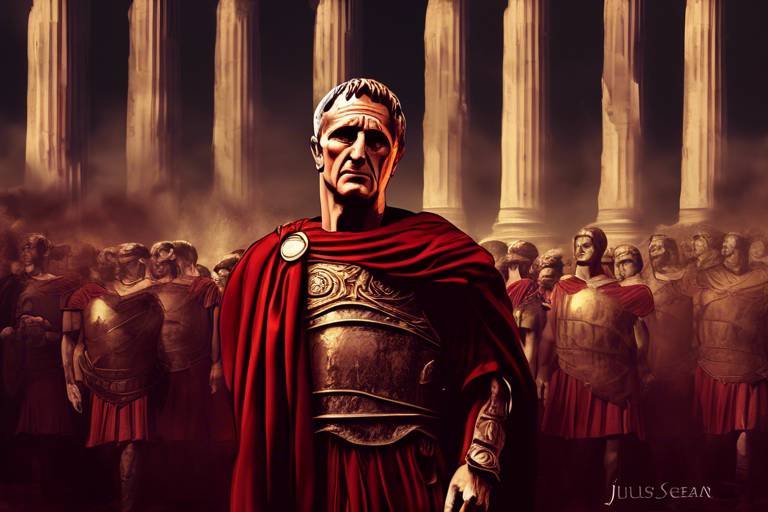Alexander I: The Emperor Who Defeated Napoleon
Emperor Alexander I of Russia, a formidable figure in European history, rose to prominence as the leader who stood against the mighty Napoleon Bonaparte. His reign marked a turning point in the Napoleonic Wars, where his strategic decisions and military prowess played a pivotal role in the eventual defeat of the French emperor.
From his early days, Alexander I displayed a keen sense of leadership and determination. Ascending to the Russian throne at a young age, he faced immense challenges but embraced them with grace and courage. His upbringing and education laid the foundation for his future endeavors, shaping him into a ruler who would leave a lasting impact on the course of history.
The Russian campaign against Napoleon stands out as a defining moment in Alexander I's legacy. The fierce battles, most notably the Battle of Borodino, showcased his military acumen and unwavering commitment to defending his homeland. The eventual retreat of Napoleon's forces from Russia in 1812 marked a significant victory for Alexander I and a turning point in the Napoleonic Wars.
Following Napoleon's defeat, Alexander I played a key role in the Congress of Vienna, where European powers gathered to restore stability and forge a new order. His diplomatic skills and vision for a balanced Europe influenced the decisions made during this crucial period, shaping the future of the continent.
Internally, Alexander I implemented bold reforms and policies aimed at modernizing Russia and strengthening its position on the world stage. The establishment of the Holy Alliance and efforts to transform the country's government and society reflected his progressive outlook and commitment to progress.
Alexander I's legacy reverberates through history, with his contributions to the defeat of Napoleon and his impact on European politics enduring to this day. However, controversies and conspiracy theories surrounding his alleged death add a mysterious twist to his story, leaving historians and enthusiasts intrigued by the enigmatic ruler's final days.
Historical perspectives on Alexander I's reign vary among scholars, with debates and interpretations shaping our understanding of this influential era. His complex persona and multifaceted role in defeating Napoleon continue to spark discussions and reflections on his place in history.
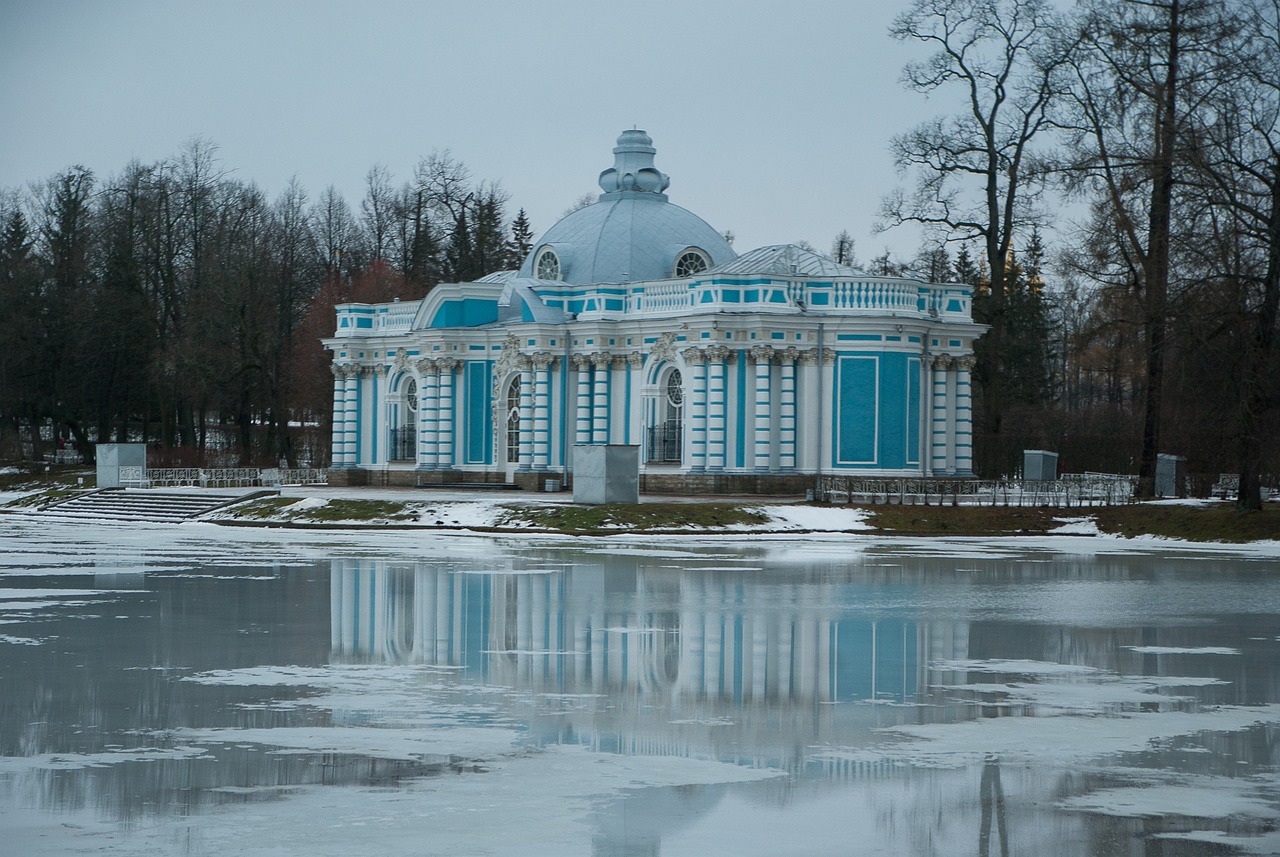
Early Life and Ascension to the Throne
At the dawn of the 19th century, a young Alexander I ascended to the Russian throne, stepping into a world of political intrigue and power dynamics. Born in 1777 as the eldest son of Emperor Paul I, Alexander was raised in the opulence of the Russian court, surrounded by tutors and advisors who shaped his worldview. His education was comprehensive, covering a wide range of subjects from military strategy to diplomacy, preparing him for the responsibilities that lay ahead.
Tragedy struck early in Alexander's life when his father, Paul I, was assassinated in 1801, leading to Alexander's unexpected and rapid ascension to the throne at the age of just 23. This sudden transition thrust him into a position of immense authority and influence, testing his leadership skills and political acumen. Despite his youth, Alexander proved to be a capable ruler, navigating the complex web of court politics and international relations with a deft hand.
As Emperor of Russia, Alexander I embarked on a mission to modernize and reform his vast empire, drawing inspiration from the Enlightenment ideals that were sweeping across Europe. He introduced a series of progressive policies aimed at improving the lives of his subjects, promoting education, industry, and infrastructure development. His vision for Russia was one of progress and prosperity, driven by a desire to elevate his country to the ranks of the great powers of Europe.
However, Alexander's early reign was not without its challenges. The shadow of Napoleon Bonaparte loomed large over Europe, threatening the stability of the continent with his ambitious military campaigns. Recognizing the danger posed by the French Emperor, Alexander I began to position Russia as a bulwark against Napoleon's expansionist ambitions, laying the groundwork for the epic clash that would define his legacy.
As Alexander I settled into his role as Emperor, he faced a myriad of obstacles and adversaries, both within and outside his court. The political landscape was fraught with tension and intrigue, as rival factions vied for power and influence. Yet, through it all, Alexander remained steadfast in his commitment to lead Russia with wisdom and foresight, determined to secure his place in history as a transformative and visionary ruler.

Russian Campaign Against Napoleon
The Russian campaign against Napoleon, led by Emperor Alexander I, marked a significant turning point in the Napoleonic Wars. It was a clash of titans, with both sides deploying massive armies and strategic brilliance. The Battle of Borodino, fought in 1812, stands out as one of the bloodiest battles in European history, where Russian forces fiercely resisted the French onslaught, inflicting heavy casualties.
As the harsh Russian winter set in, Napoleon's army faced immense challenges, including dwindling supplies and harsh weather conditions. The famous retreat from Russia in 1812 became a symbol of Napoleon's failed campaign, showcasing the resilience and determination of the Russian forces under Alexander I's leadership.
The campaign highlighted the effectiveness of Russian military tactics, such as scorched-earth strategy, which devastated the advancing French army and contributed to their eventual defeat. Alexander I's strategic decisions and the unity of the Russian people played a crucial role in repelling Napoleon's invasion and protecting their homeland.
Despite initial setbacks and fierce resistance from the French forces, the Russian campaign against Napoleon ultimately proved successful, dealing a significant blow to Napoleon's ambitions of dominating Europe. Alexander I's leadership and the bravery of the Russian soldiers in the face of a formidable enemy left a lasting impact on the outcome of the Napoleonic Wars.

Congress of Vienna and European Diplomacy
During the Congress of Vienna, Alexander I played a pivotal role in reshaping the political landscape of Europe after the defeat of Napoleon. The Congress aimed to restore stability and establish a new balance of power to prevent future conflicts. Alexander I's diplomatic skills and vision for a peaceful Europe were instrumental in the negotiations that took place among the major European powers.
At the Congress, Alexander I advocated for the principles of legitimacy, where the rightful monarchs would be restored to their thrones, and territorial integrity, to ensure a stable and secure continent. His efforts were focused on creating a lasting peace that would benefit all nations involved, rather than seeking revenge or further territorial expansion.
Through his diplomatic initiatives, Alexander I sought to foster cooperation and understanding among the European powers, laying the foundation for a new era of diplomacy based on dialogue and compromise. His commitment to finding peaceful solutions to conflicts set a precedent for future diplomatic endeavors and contributed to the stability of Europe in the post-Napoleonic period.
Furthermore, Alexander I's participation in the Congress of Vienna solidified Russia's position as a key player in European politics and diplomacy. His strategic decisions and diplomatic maneuvers during the negotiations demonstrated his ability to navigate complex international relations and advance Russia's interests on the world stage.
In conclusion, the Congress of Vienna and Alexander I's role in European diplomacy marked a significant turning point in the history of the continent. By promoting cooperation, stability, and peaceful coexistence among nations, Alexander I contributed to the establishment of a new order that would shape European politics for decades to come.

Domestic Reforms and Policies
During his reign, Alexander I implemented significant domestic reforms and policies aimed at modernizing and transforming Russia's government and society. One of his most notable initiatives was the establishment of the Holy Alliance, a coalition of European monarchs formed after the defeat of Napoleon with the goal of promoting Christian principles and maintaining peace. This alliance reflected Alexander I's vision of a harmonious and stable Europe based on moral values.
Furthermore, Alexander I introduced educational reforms to improve literacy rates and access to education across Russia. He promoted the establishment of schools and universities, fostering intellectual development and creating a more educated populace. These reforms laid the foundation for future advancements in Russian education and culture.
In addition to educational reforms, Alexander I focused on modernizing the military and strengthening Russia's defenses. He invested in military infrastructure, expanded the army, and introduced new tactics and technologies to enhance Russia's military capabilities. These efforts played a crucial role in the successful defense of the country during the Napoleonic Wars.
Moreover, Alexander I implemented economic reforms aimed at boosting Russia's economy and promoting industrial growth. He encouraged trade and commerce, supported the development of industries, and implemented policies to attract foreign investment. These reforms contributed to the expansion of Russia's economy and its integration into the global market.
Another key aspect of Alexander I's domestic policies was his efforts to address serfdom in Russia. While he did not abolish serfdom during his reign, he initiated discussions and reforms aimed at improving the conditions of serfs and gradually transitioning towards a more equitable system. Although these efforts were met with resistance from nobles, they laid the groundwork for future reforms under his successors.
In summary, Alexander I's domestic reforms and policies aimed at modernization, education, military strength, economic development, and social progress had a lasting impact on Russia's trajectory and laid the groundwork for future transformations in the country.
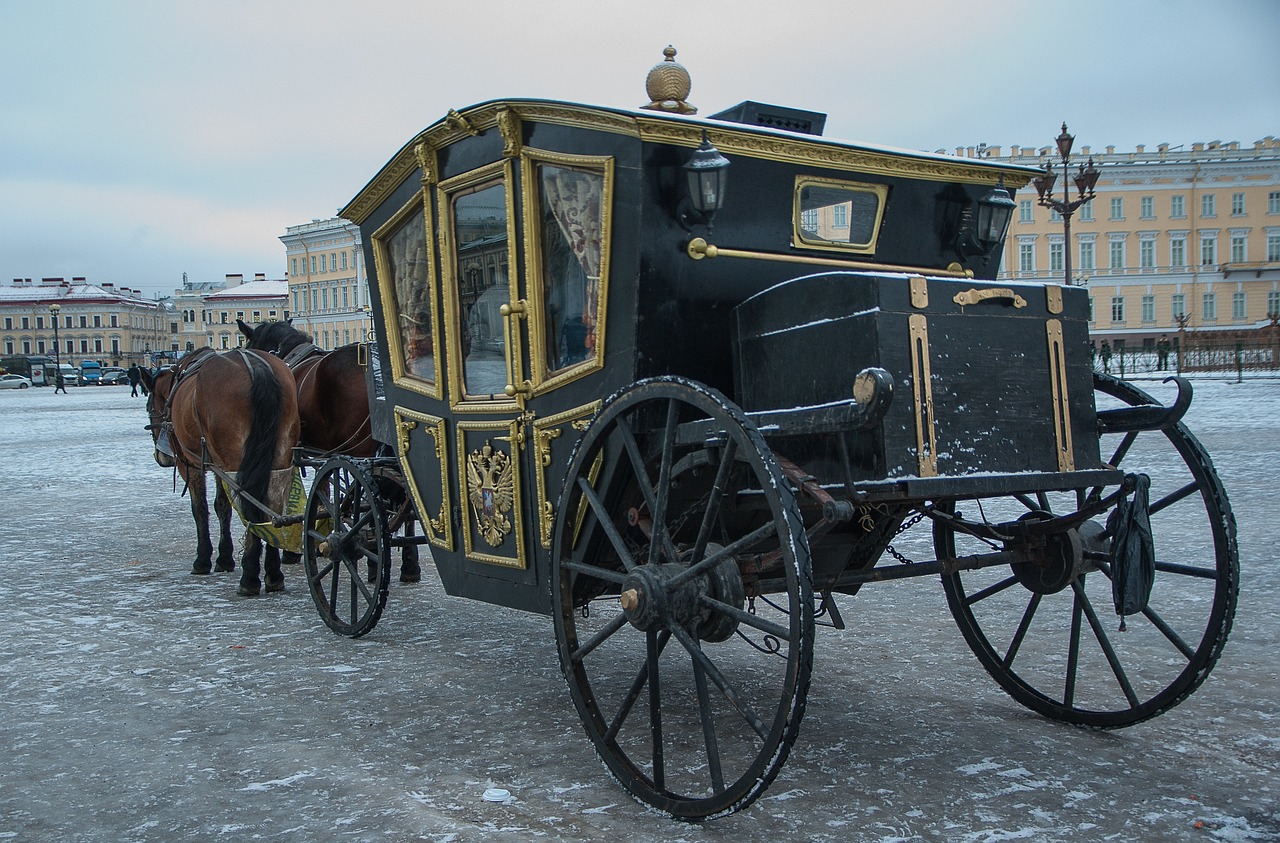
Legacy and Historical Impact
When it comes to the legacy and historical impact of Alexander I, one cannot underestimate the profound influence he had on Russian and European history. His pivotal role in the defeat of Napoleon Bonaparte and the Napoleonic Wars reverberated throughout the early 19th century, shaping the geopolitical landscape of the time.
Alexander I's leadership during the Russian campaign against Napoleon solidified his reputation as a strategic military commander. The Battle of Borodino, often referred to as the deadliest day of the Napoleonic Wars, showcased Alexander I's determination and resilience in defending his homeland against the French invasion.
Furthermore, the eventual retreat of the French forces from Russia in 1812 marked a turning point in the Napoleonic Wars, with Alexander I's tactics contributing significantly to Napoleon's ultimate defeat. This triumph not only secured Alexander I's place in history but also cemented Russia's position as a major power in Europe.
Moreover, Alexander I's diplomatic efforts following Napoleon's defeat, particularly his involvement in the Congress of Vienna, played a crucial role in restoring stability and balance of power in Europe. His vision for a unified and peaceful continent resonated with many European leaders, setting the stage for a new era of diplomacy and cooperation.
On the domestic front, Alexander I implemented a series of reforms aimed at modernizing Russia and strengthening its government and society. The establishment of the Holy Alliance, a coalition of European monarchs dedicated to upholding Christian principles in governance, exemplified Alexander I's commitment to fostering unity and stability within his own empire and beyond.
Overall, Alexander I's legacy as the Emperor who defeated Napoleon is one of resilience, diplomacy, and reform. His contributions to European history continue to be a subject of study and debate among historians, reflecting the complex and multifaceted nature of his reign and its lasting impact on the world stage.

Assassination Conspiracy and Controversies
As the reign of Alexander I came to a mysterious end, a cloud of conspiracy and controversy enveloped his alleged assassination. Rumors swirled, suggesting that the Emperor may have orchestrated his own death to escape the pressures of ruling. Some even speculated that he faked his demise and lived out the rest of his days in anonymity. The uncertainty surrounding Alexander I's fate has fueled endless debates among historians and conspiracy theorists alike, adding a layer of intrigue to his already enigmatic legacy.

Historiographical Perspectives
Historiographical Perspectives on Alexander I's reign and his role in defeating Napoleon offer a fascinating glimpse into the complexities of historical interpretation. Historians have long debated the extent of Alexander I's contributions to Napoleon's downfall and the subsequent reshaping of European politics. Some scholars view Alexander I as a visionary leader whose diplomatic maneuvers and military strategies were instrumental in defeating the French Emperor. Others, however, question the Emperor's motivations and argue that his actions were driven more by personal ambition than a genuine desire for European stability.
One key point of contention among historians is the significance of the Congress of Vienna in shaping the post-Napoleonic world order. While some praise Alexander I's diplomatic skills in negotiating the terms of the congress and establishing a framework for peace in Europe, others criticize the resulting agreements as short-sighted and ultimately ineffective in preventing future conflicts.
Furthermore, the debate over Alexander I's domestic policies and reforms adds another layer of complexity to the historiographical perspectives on his reign. Some historians applaud his efforts to modernize Russia and promote conservative values through initiatives like the Holy Alliance, while others argue that these measures stifled progress and perpetuated social inequalities.
In evaluating Alexander I's legacy, historians must navigate a landscape of competing narratives and conflicting interpretations. The Emperor's enigmatic personality and the mysteries surrounding his alleged death only add to the intrigue, fueling speculation and conspiracy theories that continue to capture the imagination of scholars and enthusiasts alike.
Frequently Asked Questions
- 1. Who was Alexander I?
Alexander I was the Emperor of Russia who reigned from 1801 to 1825. He played a significant role in the defeat of Napoleon Bonaparte and the Napoleonic Wars, shaping European history in the early 19th century.
- 2. What were Alexander I's major accomplishments?
Alexander I led the Russian campaign against Napoleon, including the famous Battle of Borodino. He also played a key role in the Congress of Vienna, restoring stability in Europe post-Napoleon. Additionally, he implemented domestic reforms and policies to modernize Russia.
- 3. What is the Holy Alliance?
The Holy Alliance was a coalition formed by Alexander I with Austria and Prussia to uphold Christian principles in European politics. It aimed to maintain peace and stability in the aftermath of the Napoleonic Wars.
- 4. Was Alexander I assassinated?
There are conspiracy theories surrounding Alexander I's death, with some suggesting he may have faked his own death. The circumstances of his passing remain shrouded in mystery, leading to ongoing debates among historians.
- 5. How did Alexander I influence European history?
Alexander I's leadership in defeating Napoleon and his diplomatic efforts at the Congress of Vienna reshaped the geopolitical landscape of Europe. His legacy continues to be a subject of historical analysis and debate.






